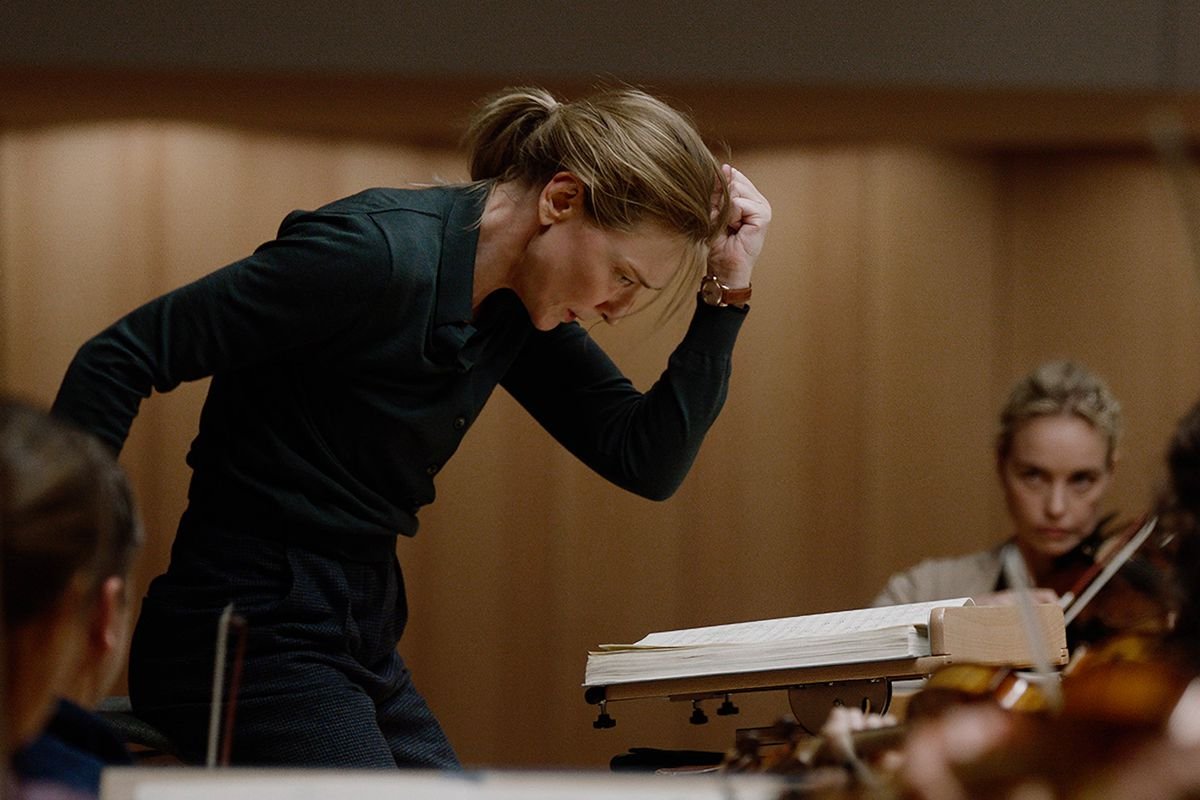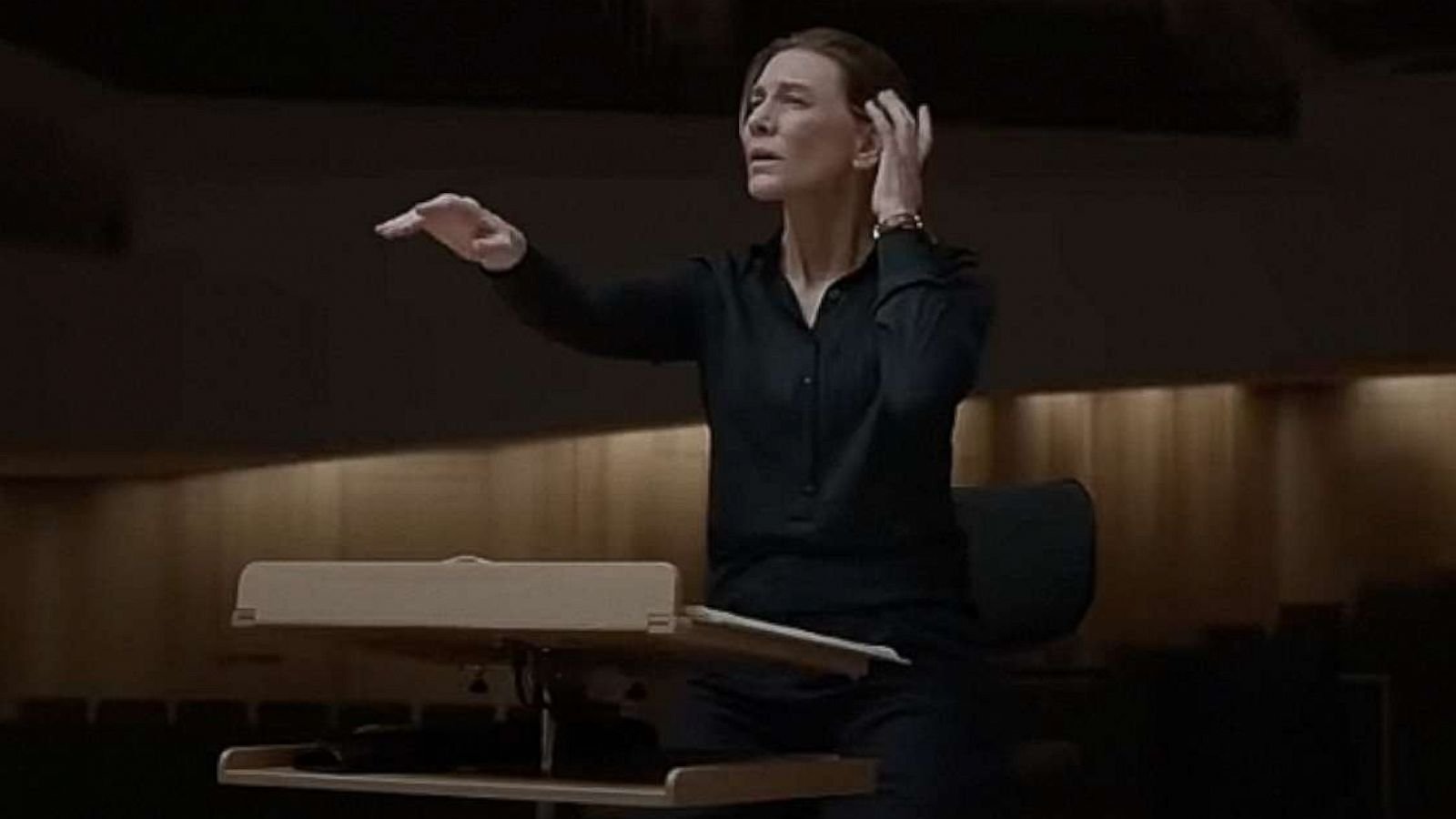“Tár” Review
Cate Blanchett mesmerizes as composer/conductor Lydia Tár in “Tár,” which sees the two-time Oscar winner give one of her best performances.
I don’t think I’ve seen a film be carried by its lead performance quite like “Tár.” Don’t get me wrong, there’s a lot to love about the film from its breathtaking visuals to a story that keeps you guessing, but this is truly a film dependent on the talents of its lead. In this case, Cate Blanchett takes control of your gaze the second she appears on screen and doesn’t let go until the credits roll. She makes this film and what a film it is.
Lydia Tár (Cate Blanchett) is a composer and conductor who’s admired all over the world by her colleagues and the general public. She’s an EGOT winner, a certified genius with music and is also the first female chief conductor for the Berlin Philharmonic currently working on a performance of Mahler’s Fifth Symphony, which is to be recorded live. However, as the film progresses, we begin to realize that Tár isn’t the perfect genius that she appears to be when some of her past deeds come back to haunt her.
Like I said, Cate Blanchett’s performance is remarkable which is saying something given her long saga of amazing roles. I honestly believe that Blanchett’s portrayal of Lydia Tár could net her a third Oscar and it would be well-deserved. There is so much to love about this character including the passion she has for music, how much energy she puts into her role as the conductor and the love she has for her daughter Petra (Mila Bogojevic). An opening scene where she’s interviewed by New Yorker writer Adam Gopnik showcases her intense knowledge of music with her tossing around composers and orchestral terms left and right.
This passion sucks us in and makes us relate so much to Tár. Her passion becomes our passion. This makes it shocking when we begin to discover that her flaws are more than just slight. Her absolute power as a force in the music community has slowly corrupted her as she always feels the need to be right, is domineering and thinks of herself as superior to the point where she calls her detractors “robots.”
Writer/director Todd Fields examines power through a unique set of eyes. While it’s no secret, almost a cliché, that absolute power corrupts absolutely, it’s not as common to see this through the eyes of female characters. However, it’s women with authoritative power that I find to be the most fascinating. The way Fields writes Tár and the way that Blanchett carries herself could give Paddy Chayefsky and Faye Dunaway in “Network” a run for their money.
Lydia Tár’s passion for art cleverly masks her darker characteristics for a significant portion of the film, until we suspect that she’s not the angel of music that she would have you believe.
As the film progresses, Tár’s sins begin to unveil themselves without being specifically stated. Through a series of dream sequences, visual queues and out-of-context conversations, we learn of the darkness that has been brewing within a character that was originally likable and charming which of course is a story we’re now familiar with in the real world. How many corrupt and abhorrent people, particularly in the entertainment industry, were able to ensnare victims because of their charm and power? All of them.
Blanchett’s delusions of grandeur increase throughout the film creating a more subtle version of the insanity that Gloria Swanson brought to Norma Desmond in “Sunset Boulevard.” Fields and Blanchett took me on a journey where I had no clue what the destination was. I just wanted to see where it went.
Much like Norma Desmond, Lydia Tár has people dedicated to her every breath. Her assistant Francesca (Noémie Merlant) and her wife Sharon (Nina Hoss) are full of adoration for the composer and yet this still isn’t enough. Tár becomes fixated on a cellist named Olga and this, along with other objects of desire from the past, is what triggers her eventual downfall. Much like the train heading towards a cliff, you know the crash is coming. You just are dying to know when and how big the flames will be.
As a cinematic experience, “Tár” was amazing with beautiful visuals that are just as haunting, particularly in the mostly silent dream sequences. I haven’t seen a film that looks so cold and yet so attractive in quite a while. While I expected the film to have a fantastic relationship with music, I didn’t expect to see the marvelous Hildur Guonadóttir to appear in the film’s credits. Her compositions are legendary, especially her Oscar-winning work on “Joker,” and she brings all of her massive talent to this film as well, creating a musical landscape that creeps up into your subconscious, melding you mentally with the protagonist.
While the past few years have been full of music biopics which have landed well at the box office, the masterful storytelling of “Tár” makes it one of the most interesting biopics you could see. Except that the entire story is fictional.



